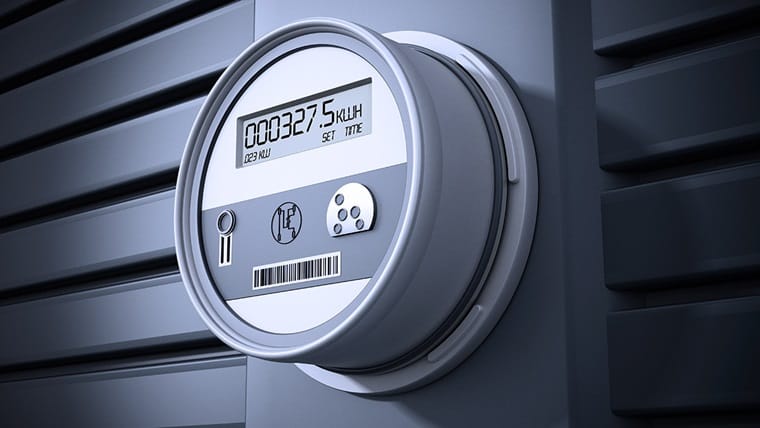Huntsville Utilities Smart Meter Opt-Out Policy Faces Pushback
Citizens, Physicians Cite Health Risks; Board Delays Vote

By Alicia Boothe Haggermaker, Guest Contributor
The debate over Huntsville Utilities’ (HU) proposed smart meter opt-out policy intensified this week as the Gas & Water Board declined to approve the draft policy, instead postponing a decision until September. The move came after physicians and engineers presented evidence that smart meters pose health, fire, and cybersecurity risks — evidence that critics say HU has downplayed or ignored.
The Electric Board will take up the draft policy on Wednesday, August 27 at 8:30 a.m., followed by the Huntsville City Council on Thursday, August 28 at 5:30 p.m.
During Tuesday’s meeting, HU CEO Wes Kelley highlighted the yellow-marked sections of the draft policy, presenting them as areas requiring board input. Kelley asked members whether:
- Gas/Water and Electric should share the same opt-out policy.
- The policy should apply to new as well as current customers.
- The policy should extend to both residential and commercial customers.
Only two of the three board members were present. One member moved to approve the restrictive policy. The other board member, however, declined to second the motion, saying only: “I do not second this motion.”
The lack of a second killed the motion outright. HU leadership later admitted they were unsure of the next steps, noting that such a situation had “never happened before.”
At the same time, HU officials conceded that prior concerns about self-reporting “chaos” and billing difficulties were unfounded. The utility’s IT manager explained that new systems and apps now make dual operations feasible, and running both old and new systems to accommodate opt-outs would not cause significant problems.
HU also revealed that it currently has about 1,000 analog meters in stock and could obtain more refurbished units from distributors if customer demand increases.
Huntsville physician Dr. David Calderwood challenged HU’s portrayal of the technology:
“The information coming from the telecom industry, and the manufacturers of the AMI meters is inaccurate. There are thousands of independent research studies, not sponsored or paid for by the industry, which show that radiation frequency is harmful in many ways, and that these meters emit a very large amount of radiation, much larger than is healthy.”
He continued:
“The industry claims that the AMI meters only transmit a few times a day, and the levels are very low, much less than a cell phone. An individual can prove for themselves that this is inaccurate by taking an EMF meter and metering for several minutes next to an AMI meter. I measured my neighbor’s meter and found that it is constantly emitting with high spikes 8 to 10 times a minute with spikes between 300,000 and 500,000 µW per meter squared. To put this into context: a level of 10,000 causes sperm DNA fragmentation as well as headaches, insomnia, fatigue, and irritability in adults. 40,000 causes changes in the brain hippocampus affecting learning and memory. The levels put off by these AMI meters added to the Wi-Fi level in most homes is at a dangerous level. The effects are cumulative, and with constant exposure, we all will eventually be adversely affected.”
Dr. Alice Tzeng, another Huntsville physician, described troubling clinical observations:
“I began seeing younger and younger patients diagnosed with cancer—especially brain tumors—and started to wonder why. I know of one young girl, age 9 or 10, who developed a brain tumor, and learned that she slept with her head a few feet away from a smart meter on the outside of the house. I also witnessed a surge in symptoms like cognitive fog, heart palpitations, memory disruption, mood swings, and profound sleep disturbances—often beginning shortly after meter installation. Several patients were forced to abandon their homes to escape.”
Concerns extend beyond health. Engineers working with the citizens’ group have warned about fire hazards. A forensic study found that radiofrequency pulses from smart meters can degrade PVC wiring insulation, leading to ignition. Distinctive meter-related fires have been documented within months of installation, with a 59% national spike in fixed-wiring fires during the rollout years of 2012–2015.
Expert engineering testimony submitted to the Supreme Court of Pennsylvania in Povacz v. PUC reinforced these findings, noting that smart and digital meters emit RF in two ways: (1) pulsed antenna transmissions, often far more frequent than utilities report, and (2) RF “noise” from switch-mode power supplies that rides the household wiring like an antenna. Bench tests showed these meters nearly doubled measured RF noise compared to analog meters, which do not create such emissions. The report concluded that “the levels of EMF and RF noise created by these meters pose an unacceptable risk compared to analog meters.”
Cybersecurity vulnerabilities and billing accuracy issues have also been raised as unresolved risks.
In June, an Open Records request was filed seeking vendor contracts, safety studies, billing algorithms, and public notification protocols for the smart meter program. HU acknowledged the request but demanded $171 in fees plus additional costs. A legal fee waiver was filed by the requestor, citing Alabama’s Open Records law and the clear public interest in the information.
To date, HU has not responded, and the concern had been expressed that failing to release basic safety and vendor information without charging hundreds of dollars is not transparency, but avoidance.
Because Huntsville Utilities is municipally owned, it is not regulated by the Alabama Public Service Commission. Oversight lies with HU’s boards and the City Council, but final approval of any opt-out framework will also require TVA’s review.
Citizens and physicians argue that HU’s draft policy — which limits opt-out eligibility to “existing single-family customers” and imposes $10–$50 monthly fees — is out of step with national norms. Most utilities allow broader eligibility, cap fees at about $10, and often offer medical waivers for vulnerable individuals.
Tuesday’s failed motion signals that even HU’s own board is hesitant to rubber-stamp the policy as currently written.
“This is a crossroads moment,” one Huntsville resident said. “We have the opportunity to join other cities in leading with fairness and transparency — by adopting a policy that protects health, respects choice, and builds trust between the utility and the community it serves.”
A local citizens' group is organizing a public Zoom session to provide comprehensive information on smart meter health risks, electro-hypersensitivity, and utility accountability. The event will be posted as an upcoming public gathering in a Facebook group, and we invite all residents to participate, bring questions, and learn how to advocate effectively.
For more information, follow Stop Smart Meters North Alabama on Facebook.
Guidelines for EMS/EHS/EMR-S Related Disability Diagnosis, Prognosis, Prescription and Need for Accommodation may be found HERE.
Alicia Boothe Haggermaker is a lifelong resident of Huntsville, Alabama, and a dedicated advocate for health freedom. For more than a decade, she has worked to educate the public and policymakers on issues of medical choice and public transparency. In January 2020, she organized a delegation of physicians and health freedom advocates to Montgomery, contributing to the initial draft of legislation that became SB267.
Opinions do not reflect the views and opinions of ALPolitics.com. ALPolitics.com makes no claims nor assumes any responsibility for the information and opinions expressed above.




